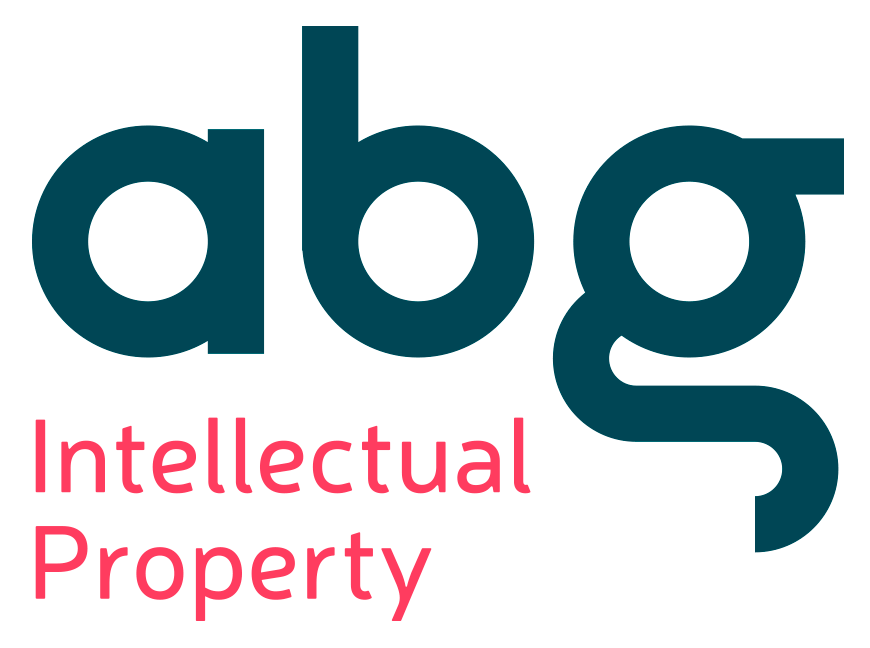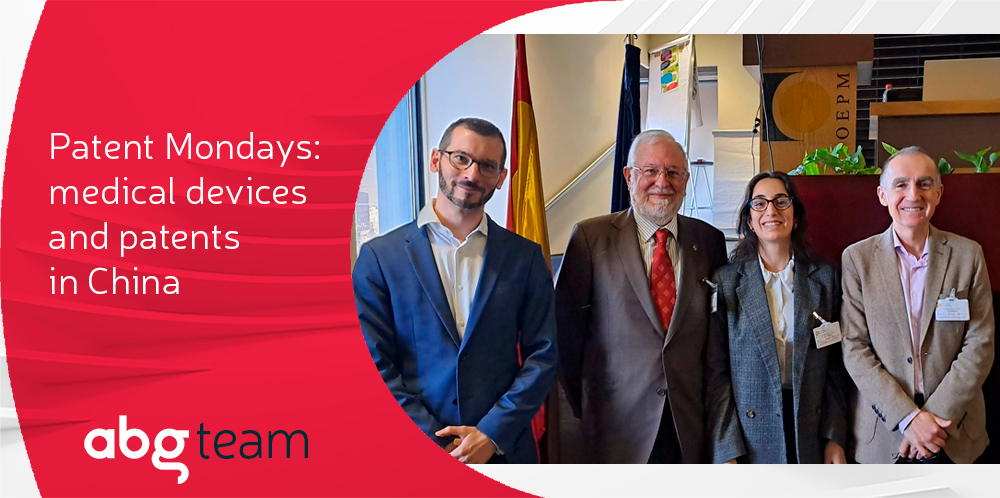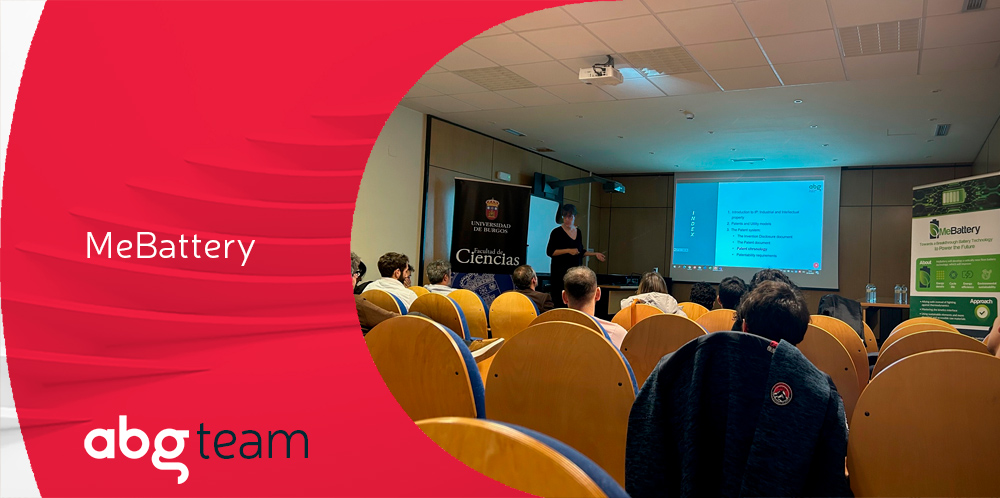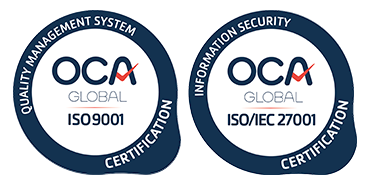The rise of the nutraceutical industry is undeniable. The use of medicinal plants and other natural resources to treat and prevent all kinds of ailments and diseases is as old as mankind itself. Today, society continues to believe and trust in these remedies. In addition, people are increasingly aware of the importance of a good diet for health care and are making an effort to avoid artificial and processed food.
Both trends are an excellent indicators of the promising future for laboratories and companies of the nutraceutical industry. This is especially the case for those focussing on discovering plant substances beneficial to humans and transforming them into functional foods. This is the case of Nektium Pharma, a company based in Gran Canaria with a large portfolio of intangible assets.
In this ABGclients, we interview Dr. Julia Wiebe, Nektium Pharma’s Chief Science Officer. She leads new product development, innovation and patent strategy, and oversees in-house and external research of ingredients. She is a trained agricultural engineer and a biologist with an MBA specialising in innovation. She also holds a PhD in molecular biology and immunology, in addition to many years of experience under her belt in preclinical and clinical research.
Nektium Pharma and their quality botanical extracts
When was Nektium Pharma founded?
The company was initially founded under the name Polinat more than 20 years ago. It was born from two friends’ shared passion for the ethnobotany, phytochemistry and pharmacology of little-known botanicals and their applications in health and wellness. One of the founders, Dr Miguel Jiménez, is still the CEO and president of Nektium, which is a family-owned business. Today, Nektium is respected as an ethnobotanical and evidence-based innovation specialist in the nutraceutical supply chain.
What is Nektium’s mission?
Today, the company is still defined by its solid foundation of dedicated relationships, love of nature, and passion for research excellence and innovation. We have been able to continue nurturing these values as a result of our high-specification facilities on the island of Gran Canaria (Spain).
Nektium brings ethnobotany to life. We work to identify the best plants and extracts to perform clinical studies for human health in collaboration with universities and CROs. Nektium uses world-class technologies and proprietary methods to produce the best quality botanical extracts.
Nektium already has many products in the market. Can you tell us what the most important brands are and what they are for?
Nektium’s most important brands are Zynamite®, Xanthigen® and Rhodiolife®:
- Zynamite® is an award-winning patented botanical extract. It provides cognitive and physical performance benefits beyond those of caffeine. This product is the result of a global ethnobotanical quest to identify botanicals with potential to be the next-generation caffeine-free botanical nootropic. Zynamite® is protected by three families of patents and patent applications.
- Xanthigen® is a patented, clinically studied proprietary weight management formulation. It consists of a synergistic combination of an algae extract and Pomegranate seed oil. This product has been a huge success in Asia for many years.
- Rhodiolife® is Nektium’s proprietary standardised extract of one of the most potent adaptogens: Rhodiola rosea, also known as the golden root. Adaptogenic herbs work by helping the body to adapt to both physical and mental stress. For the past 20 years Nektium has been the world leader in the production of Rhodiola rosea.
Intellectual Property and nutraceutical companies
Do you think that the nutraceutical industry is aware of the importance of managing and protecting of their intellectual property for long term success?
Nutraceutical companies, especially innovative ones like Nektium, are well aware of the factors to success. Specifically, in our fast-changing, knowledge-based economy, the importance of intellectual capital (which includes people and their know-how) and intellectual property (patents, trademarks, copyright, and trade secrets) are key. Today, rather than being defined by tangible assets like our factory and its equipment, the company’s market value lies in intangible assets. These include intellectual capital and brand equity, which are closely linked to the company’s performance, long-term growth and future benefits.
Thus, investing in intellectual capital is an important issue for those companies that want to stay competitive in the long run, and this is unquestionably Nektium’s objective. Companies like ours can only survive in this competitive market for over 20 years because they are aware of the importance of their inventions and innovations. They must also consider intellectual capital an important organizational asset. This asset needs to be developed, properly managed and protected in order to assure a long-lasting competitive advantage of the company and improve corporate performance.
In recent years the pressure for commoditized products has been growing, as Indian and Chinese companies changed their strategy to produce cheap quality extracts. To avoid disruption, companies like Nektium focus on the development of innovative products and their protection by patents and registered trademarks to stand out from competitors.
Nektium’s IP
How important is it for Nektium to protect its intellectual property?
Intellectual property is a vital part of Nektium’s intangible assets and the company’s value. This makes protecting our inventions and innovations through patents and trademarks absolutely crucial. However, it is not easy to protect innovation in the nutraceutical industry. As opposed to the pharmaceutical industry, where it is quite straightforward to patent new molecules, it is not always possible to protect plants and plant extracts in this way. This forces us to find a method of use or a synergy that justifies the novelty and inventiveness, particularly in the USA.
At the same time, companies like Nektium with a strong focus on Research & Development & Innovation (R&D&I), are having to deal with exploding investment costs to ensure they stay ahead of the curve in product and process innovation. We need to innovate to stand out from competitors and avoid becoming obsolete, and we also need to gain competitive advantages to get a return on the investment we make. This is why developing suitable protection strategies for our industrial property is essential. The temporary monopoly they give us provides the opportunity to recoup profits that are necessary to continue investing in long-term R&D and innovation.
Nektium is seeking patent protection in a wide geographical scope. How do you select the designated countries? Which markets are the most important for the nutraceutical sector?
For us the most important markets are the USA, Europe, Japan and Korea; so we make sure these countries are always covered. In addition, we also try to include countries with a growing nutraceutical and functional food market that we might be interested in expanding into in the future, such as China. We are also interested in countries where aggressive infringement of IP rights takes place, like Brazil.
Last year, Nektium was granted a US and European patent for Zynamite. How have these two assets affected Nektium’s business?
In our knowledge driven society, patents and trademarks have become a powerful instrument in corporate strategy. They protect the company from imitation, improve market position, and empower innovative companies like Nektium to leverage their creative potential and reap the full value of their invention. They also help us strengthen our leadership in the market and allow the company to trade intellectual assets.
That said, the patents we are granted provide a huge advantage when it comes to negotiating with customers and reinforcing our market position. They are strong marketing tools that inspire confidence in the product and are also a promise that we will keep growing the Brand as we own the ingredient or the application. It makes a crucial difference for customers to know that an ingredient is patented, as it gives the final product additional value and protection from competitors. Therefore, customers understand and appreciate that when Nektium invests in research and patents, it does so because it believes in its products.
Nektium has several granted patents and patent families for its major Brands. They entail significant costs but we see this as an investment in the future of the Brand, not just as an expense.
You currently have a large patent portfolio, what does its management imply?
A considerate patent portfolio management is necessary to avoid merely accumulating patents and to optimise their value. Our patent strategy must align with the company’s overall R&D&I strategy. This is why the company’s business and financial managers are involved to ensure sound management and administration of our IP portfolio and to maximise its value.
Out-licensing allows us to generate additional ROI. Therefore, we also always consider the exploitation of external opportunities, especially regarding not-exploited patents that only generate maintenance fees. For us, regularly analysing the patent portfolio becomes important for indicating which patents are no longer worth the cost of maintaining them.
What value do you consider that your brand image has for your business?
In order for the company to achieve sustained, long-term growth, it must build a brand that has lasting value and differentiates it from competitors. This value can be embedded in company trademarks and patents. Brands have significant value even for small businesses and in some sectors make up about 40% of the company’s value. No brand means no differentiation, and no long-term profitability.
As Nektium does not have an in-house patent and trademark experts, we rely on our partners from ABG to make sure our IP portfolio is protected and managed in the best possible way. Ultimately, the company’s future success relies heavily on it.
SME & IP rights
The European Union Intellectual Property Office (EUIPO) has issued an analysis report concluding that there were 68% higher revenues per employee in SMEs with IP Rights portfolios than in SMEs without IP Rights portfolios. Were you aware of the importance of IP rights when you started working at Nektium and what advice would you give to other SMEs?
When I joined Nektium to head up R&D+I, I took over the management of the existing patent portfolio. It mainly focussed on weight management but we soon extended the portfolio when we turned our attention to central nervous system (CNS) and sports nutrition.
In addition to protecting our IP with patents, we also publish the results of our scientific work in peer-reviewed journals, and this is when it becomes complicated. Different countries have different rules and we quickly realised that we needed support in Europe to make sure that publishing our results didn’t restrict the patentability of our products.
The wording of a patent is also full of pitfalls; choose the wrong word and protection can be at risk. Therefore, after writing the first two patents ourselves, we decided to find a reliable partner, with extensive experience in patents and a strong scientific background. This was the best course of action, because as the patent families started to grow, so did the office actions, examiner reports, responses, and deadlines.
While you can learn as much as possible, at the end of the day it is impossible for someone from a completely different field of expertise to keep track of everything. It’s a fulltime job, not a side project.
So what advice would you give a SME about protecting its intellectual property?
Well, firstly to keep in mind that investing in the company’s intellectual capital, including knowledge and intellectual property, brings double the benefits to the company as the investment in physical assets. Therefore, it should consider IP protection as an investment in the company’s future. It should also try to have a clear IP strategy and correctly manage the portfolio to obtain maximum ROI.
If the company doesn’t have an expert, I recommend finding the best IP partner to keep everything under control. Make sure this partner firm is very well organised, with broad knowledge in patents and great technical and scientific experts, in addition to being available on a Sunday or Christmas day, if necessary. It should help you whenever you spot a threat to your IP. Lastly, make sure you find the best. It may seem more expensive initially, but it balances out in the end.
IP experts are a valuable asset
How does ABG Intellectual Property help you to protect Nektium’s industrial property?
We have been collaborating with ABG Intellectual Property on patents, trademarks and transactions since 2018.
ABG IP is our first choice for patent and trademark prosecution work in Europe and other jurisdictions, as well as handling our patents and trademarks internationally. For a company like Nektium, it is important to obtain sound IP protection. This means avoiding infringement of patents that belong to third-parties and detecting products that infringe our own patents or trademarks, which could cause economic loss. In particular, trademarks must be correctly used to avoid losing them.
At what stage of your innovation processes does ABG IP collaborate?
Before starting the development of a new product, as well as during this process, an essential step is to monitor competitors’ patents. This will ensure freedom to operate at later stages and prevent infringements or the company’s position or patent protection from being weakened. Before patenting an innovation, a careful analysis helps determine the protection it requires. The options include protecting the innovation by a patent, which entails revealing part of the idea; keeping it as a trade secret; or publishing and widely referencing it, thus bringing it under the umbrella of the company name.
ABG is also excellent for business and legal consultation. The main mistake of many companies is not defining legal issues before starting the developmental process, especially when collaborating with other companies. This can lead to legal disputes over the ownership of inventions.
What would you highlight about ABG IP’s patent and trademark attorneys and lawyers?
ABG’s patent and trademark attorneys, as well as their lawyers, are very reliable and dedicated to their work. They are practical, knowledgeable, service-oriented and proactive in suggesting ways to consolidate Nektium’s patent and trademark portfolio wherever possible. They are very professional and diligent, think both creatively and strategically, and have an excellent understanding of clients’ businesses and technologies so as to offer concise advice.
The ABG team has the capacity to acquire knowledge and an in-depth understanding of new topics to become experts in a short time. This means we can rely on them even with regards to scientifically difficult decisions. They always go the extra mile to explain in layman’s terms the meaning of legal concepts, which is enormously helpful when making decisions on such complicated matters.
